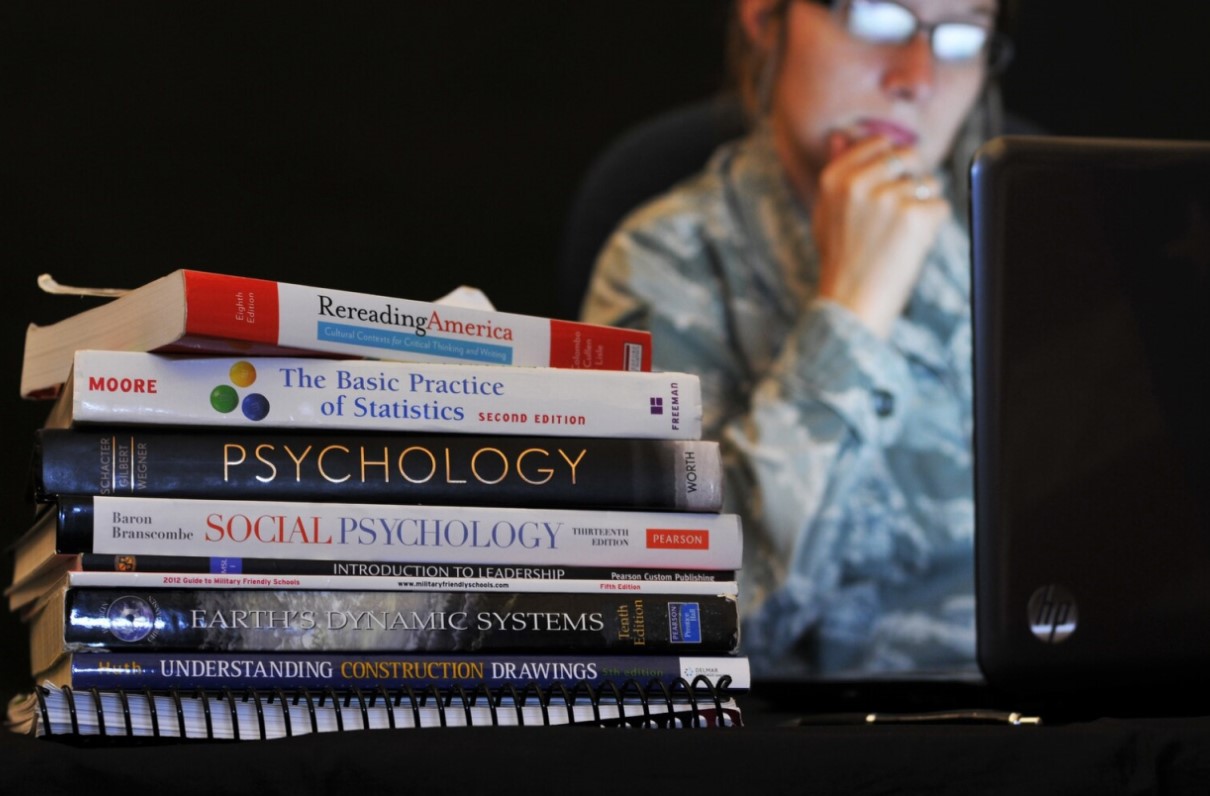This article by Patricia Kime originally appeared on Military.com, the premier resource for the military and veteran community. Read MOAA's letter in support of the Defending all Veterans in Education Act here.
On the 75th anniversary of the GI Bill, freshman U.S. Rep. Donna Shalala, D-Florida, is taking aim at for-profit colleges, introducing a bill Wednesday that would close a loophole she says props up substandard schools that view veterans as "cash cows."
Shalala's proposed "Defending all Veterans in Education Act," or DAVIE, would change what is known as the 90/10 rule, which allows for-profit colleges to receive federal student aid if they generate at least 10% of their revenue from sources other than federal dollars. The bill would change the requirement to an 80/20 ratio.
It also would make schools count GI Bill benefits as federal dollars. Currently, GI Bill payments are not counted as federal monies in the calculations, allowing for-profit schools to include them as contributing to the 10% requirement.
[RELATED: Why Closing the ‘90-10 Loophole’ Will Help Military-Connected Students]
Shalala, a former University of Miami president, said the loophole allows schools to earn nearly all of their revenue from the federal government.
Related Military.com content:
- VA Still Paying Millions in GI Bill Tuition to Ineligible For-Profit Schools: Watchdog
- Veterans Groups Oppose Legislation Loosening Restrictions on For-Profit Schools
- Federal Government Deals Another Blow to For-Profit Colleges
"We need to ensure veterans and GI Bill recipients do not fall victim to the predatory recruitment tactics of low-quality institutions that see them as little more than the profits they provide," she said in a statement. "My bill protects our veterans from these dishonest schemes."
In the past decade, a number of high-profile, for-profit universities have shuttered their doors unexpectedly, leaving thousands of students, including many veterans, without degrees, in debt or robbed of their GI Bill benefits.
Among the most high-profile closures were Corinthian Colleges and ITT, whose closures in 2015 and 2016 under stricter rules and investigations by the Obama administration left nearly 7,000 veterans in the lurch.
[RELATED: MOAA's GI Bill Page]
More recently, the shuttering of the Art Institutes and Argosy University affected roughly 1,700 GI Bill recipients, according to Shalala.
While Congress passed legislation in 2017 to restore benefits to many affected veterans, some schools continue to actively recruit military and veterans students for their reliable income streams, Shalala argues.
"Current federal laws permit bad actors in the for-profit education industry to take advantage of our veterans. ... It is unacceptable and un-American that some for-profit institutions continue to use our veterans' hard-earned benefits to line their own pockets," she said.
For-profit universities cater to non-traditional students, the working class or those below the poverty line who need the flexibility provided by many of these institutions, including convenient class times and online courses, as well as professors who work in their respective fields and only teach, not conducting research.
In the past several years, a number of for-profit schools have sought to become nonprofits or have merged with a nonprofit, such as Purdue University's acquisition of Kaplan University to extend the reach of Purdue online and to non-traditional students.
The conversions and mergers can be seen as a way to maintain a system of nontraditional schools to serve students who need them. But increasingly, the strong economy and competition from not-for-profit schools such as Southern New Hampshire University and University of Maryland University College have forced for-profits to adapt.
In announcing her bill, Shalala cited the case of Eric Luongo, a Navy veteran who testified in March that he was left with more than $100,000 in debt and an associate's degree from DeVry University in web graphic design that did not help him get a job.
[RELATED: As GI Bill Marks 75th Anniversary, Some Call for Expansion]
Luongo said he told a DeVry representative before he enrolled that he wanted to use his GI Bill benefits and grants to pay for school and was assured he could. But during the application process, the school made him complete massive amounts of paperwork, some of which he understood to be loan applications in case they were needed but would never be used.
He began receiving bills from loan companies shortly after graduation.
"I never thought that I would be the subject of such predatory acts like those I experienced with DeVry. It just kind of shows that this really can happen to anybody," he told members of the House Appropriations Labor, Health and Human Services and Education subcommittee March 12.
Shalala's bill would ensure that if a school violated the proposed 80/20 metric, it would be cut off from federal funds immediately and given a year to bring itself back into compliance.
It would also tweak what schools can count as revenue toward the percent of non-federal funds.
A number of veterans organizations, including the Military Officers Association of America (MOAA), the American Legion, the Association of the United States Navy and the Military Child Education Coalition, have come out in support of the bill.
Retired Air Force Lt. Gen. Dana Atkins, president and CEO of MOAA, said closing the 90/10 loophole is one of his organization's top legislative priorities.
"When the rule was enacted, the exclusion of the Defense Department and [Department of Veterans Affairs] education benefits from the definition of federal funds created a financial loophole that predatory institutions use to take advantage of military-connected students," Atkins said. "This has gone on too long."
Other articles by Military.com:
One Person's PTSD Can Affect a Whole Family
Coast Guard Stages Massive Rescue Exercise in Waters Off Washington, DC
10 Hollywood Tough Guys Who Studied on the GI Bill



